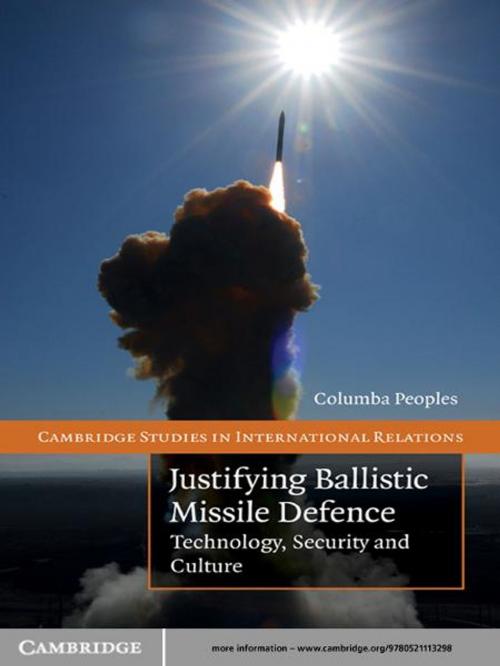Justifying Ballistic Missile Defence
Technology, Security and Culture
Nonfiction, Social & Cultural Studies, Political Science, International, International Relations, History| Author: | Columba Peoples | ISBN: | 9780511849329 |
| Publisher: | Cambridge University Press | Publication: | December 10, 2009 |
| Imprint: | Cambridge University Press | Language: | English |
| Author: | Columba Peoples |
| ISBN: | 9780511849329 |
| Publisher: | Cambridge University Press |
| Publication: | December 10, 2009 |
| Imprint: | Cambridge University Press |
| Language: | English |
Technology is championed as the solution to modern security problems, but also blamed as their cause. This book assesses the way in which these two views collide in the debate over ballistic missile defence: a complex, costly and controversial system intended to defend the United States from nuclear missile attacks. Columba Peoples shows how, in the face of strong scientific and strategic critique, advocates of missile defence seek to justify its development by reference to broader culturally embedded perceptions of the promises and perils of technological development. Unpacking the assumptions behind the justification of missile defence initiatives, both past and present, this book illustrates how common-sense understandings of technology are combined and used to legitimate this controversial and costly defence programme. In doing so it engages fundamental debates over understandings of technological development, human agency and the relationship between technology and security.
Technology is championed as the solution to modern security problems, but also blamed as their cause. This book assesses the way in which these two views collide in the debate over ballistic missile defence: a complex, costly and controversial system intended to defend the United States from nuclear missile attacks. Columba Peoples shows how, in the face of strong scientific and strategic critique, advocates of missile defence seek to justify its development by reference to broader culturally embedded perceptions of the promises and perils of technological development. Unpacking the assumptions behind the justification of missile defence initiatives, both past and present, this book illustrates how common-sense understandings of technology are combined and used to legitimate this controversial and costly defence programme. In doing so it engages fundamental debates over understandings of technological development, human agency and the relationship between technology and security.















